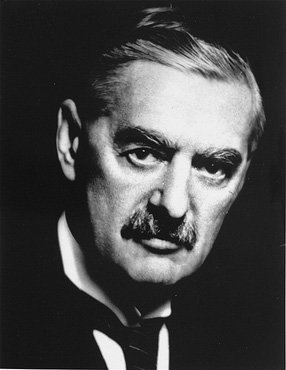"I have to tell you now that no such undertaking has been received, and that consequently this country is at war with Germany" The date was 3rd September 1939, it was 11:15 on a Sunday morning and the grave voice of Neville Chamberlain crackled out across wireless sets up and down Britain, conveying the news all of the country had been dreading.
Up and down the land families gathered around their wireless sets to hear what the Prime Minister had to say, which in the event was a relatively short announcement; he ended it by saying that he was "certain that the right will prevail". For many of the families listening on that fateful morning, the memory of the horrors of the Great War were still very fresh and painful; it had been a mere 21 years earlier that the nation had been assured that they had just fought the war to end all wars. And yet here they were again, about to fight once more and engage the same enemy!
On that doom laden morning, duly assembled at the wireless was my Mother-in-Law along with her parents. She was 6 years old and had only the previous day come out of hospital, having been knocked down by a lorry several weeks earlier and almost lost her life. She recalled that she was sat on the puffy, her head still bandaged from the accident, listening to a man's voice who seemed very sad. At the time she had no real grasp of the gravity of the situation, but she recollects her Mum and Dad seemingly very concerned at what the man was saying and them telling her to be quiet. Despite her feeling hard done to by the rebuke, which she felt was a little harsh given her condition, in later years she realised why.
This story is no doubt typical of most families on that morning, but how many of these types of accounts of intimate recollections and personal level impact of events survive? Oral history of this type is so important, particularly to the family historian, who is also in many ways a social historian. Memories of elder relatives can bring the past to life and change facts, figures and dates from being merely statistics to an absorbing fleshed out story of what was happening to your ancestors at the time of great and momentous events. People remember where they where at pivotal moments in history, and this means they recall things at a personal level. If you have elderly relatives go talk to them, ask them about the past or if you have already heard their stories, record them, write them down somewhere for future generations of your family to appreciate.
I would be delighted to hear from anyone with their tales from the families memory banks!


